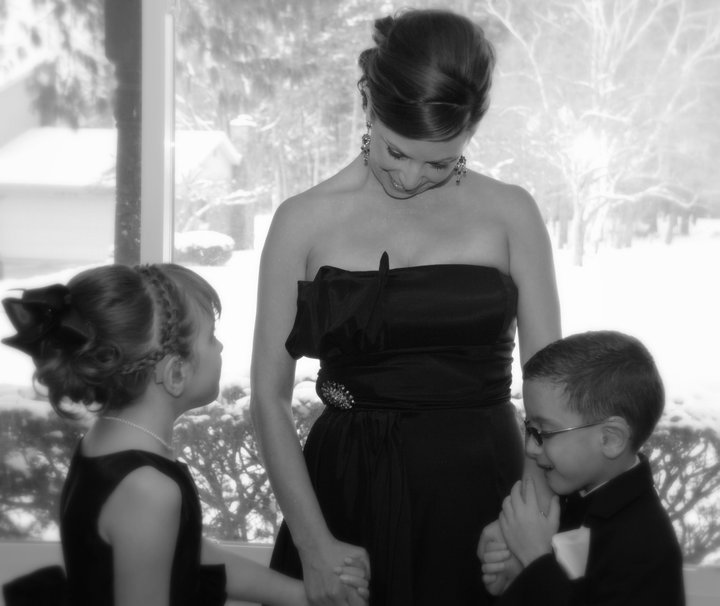Recently, I was helping my 11-year-old son with his homework when he told me an adult at school said something mean to him.
I found this hard to believe, but of course I took him seriously and investigated a little further.
“What happened?” I asked him.
“Mrs. Smith said I don’t have a brain,” he told me with a worried expression on his face.
Again, this just didn’t seem likely, so I did a little more digging.
“What were you doing when she said that?”
“Playing with clay.”
“OK, what were you doing with the clay?” I prodded.
“I wasn’t sure what to make, and she gave me some ideas and then she said, ‘Come on, Colton, that’s a no brainer.’ Why would an adult say that to a kid? Don’t they know it hurts people’s feelings?”
Whew, I thought to myself. At least I do not have to go raise hell at the school tomorrow.
I went on to explain that Mrs. Smith telling him something was a “no brainer” was in no way an insult. She wasn’t telling him he didn’t have a brain, I explained. I reassured him that Mrs. Smith did not think he was at all dumb.
Both of my children have a bilateral moderate-to-severe hearing loss. They were both born hearing but lost it at some point in early childhood due to complications from Chiari Malformation and premature birth. My daughter, Shea, was diagnosed as “hard of hearing” when she was 7, and my son was diagnosed only a few months later when he was 4. My husband and I were completely surprised about this diagnosis, as our children could articulate quite well. What we didn’t realize at the time was that they both had significant social language delays. Both Shea and Colton rely on bilateral hearing aids.
My son’s misunderstanding surprised me a bit, and I decided to ask my 14-year-old daughter if she knew what the expression “no brainer” meant.
“No…” was her immediate response as she looked as me kind of confused.
“Have you ever heard anyone say that?” I asked her.
“I don’t think so.” She looked a little unsure. So, I again explained the meaning of the expression.
I then asked them if they knew what it meant when I said, “That’s the icing on the cake.” They responded with blank stares. My son asked, “What does any of this have to do with cake?” I looked hopefully at my daughter.
“That new Maroon 5 song sure is the cat’s pajamas,” I said to her. (OK, that one was a stretch). She just shook her head and gave me the look that says, “My mother has finally gone crazy.” She breathed a deep sigh of frustration and went up to her room. As she was climbing the stairs, my son looked at me and asked, “What is wrong with you?” I told him, “Nothing, buddy, I’m just joking around” and tried to change the subject by offering to make him a banana shake (which totally worked, by the way).
I was feeling sad because at that moment I had to face the fact that both of my kids still have significant language delays. At the same time, I was also counting my blessings. A few years earlier, we’d decided to move the kids to a completely new school, school district and also immerse them in the world of deaf culture and American Sign Language. It’s been by far the best decision my husband and I have ever made on behalf of our children.
Just two weeks after starting at their new schools, my son stated, “Mom, I like my new school because the teachers never say anything that I can’t understand. At my old school, all of the grownups sounded like the teachers in the Snoopy cartoons.” A few months later, my daughter said, “I love Mrs. Jones. She is teaching me and Katie how to carry on a conversation!” For the first time in years, my daughter was comfortable wearing her hair up and letting others see her hearing aids. My son went from selecting clear or flesh-colored hearing aid ear molds to choosing bright yellow and green ones. Having hearing aids, cochlear implants and personal assistive technology is normal at their school. They both feel comfortable in their own skin.
That evening, on the day when my son had a “no brainer,” I also learned about idioms and just how confusing they are to children who are deaf or hard of hearing. I spoke to the teachers at the kids’ school and they explained that this is just another example as to how children with even mild hearing loss can have social language delays. An idiom is defined as a group of words established by usage as having a meaning not deducible from those of the individual words. At their current school, idioms are part of the daily curriculum.
As for me, when it came to making sure that my children were in the right educational setting to meet their unique learning needs, well, let’s just say I’m glad I followed my gut on that one.
Want to end the stigma around disability? Like us on Facebook.
And sign up for what we hope will be your favorite thing to read at night.


